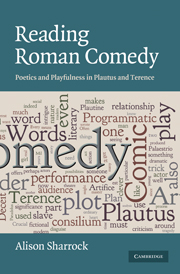5 - Endings
Published online by Cambridge University Press: 18 December 2009
Summary
What begins, must end. From Aristotelian formalists through New Critical aesthetes to post-modern deconstructionists, we all agree that the ending of a work of literature is not just a matter of neutral stopping but is one of the most (perhaps, the most) highly charged and semiotically important moments of interpretative activity for readers and audiences. How something ends affects how we finally imagine it to have been all along. Although at the performative level the comic ending is trumpeted by a grand array of signs which signal the end, at the level of plot the comic ending is frequently delayed, repeated and even denied. This playfulness about the possibility of closure is, at the same time, cut across by the Big Bang which almost arbitrarily imposes the end. As Charney says: ‘the conclusion of the comic action violates the feeling we have that comedy is dimensionless, nontemporal, infinitely extensible, and not amenable to finite solutions or resolutions.’ The comic coup which Plautus and Terence achieve in their different ways is the combination of boundlessness and the transcendence of limits with the powerfully end-stopped consummation, so often signified by the big party.
I begin with exposition of some closural signals which complete a performance, and then consider some of the emplotments and other tricks which cause the play to transcend its own boundaries.
- Type
- Chapter
- Information
- Reading Roman ComedyPoetics and Playfulness in Plautus and Terence, pp. 250 - 289Publisher: Cambridge University PressPrint publication year: 2009

